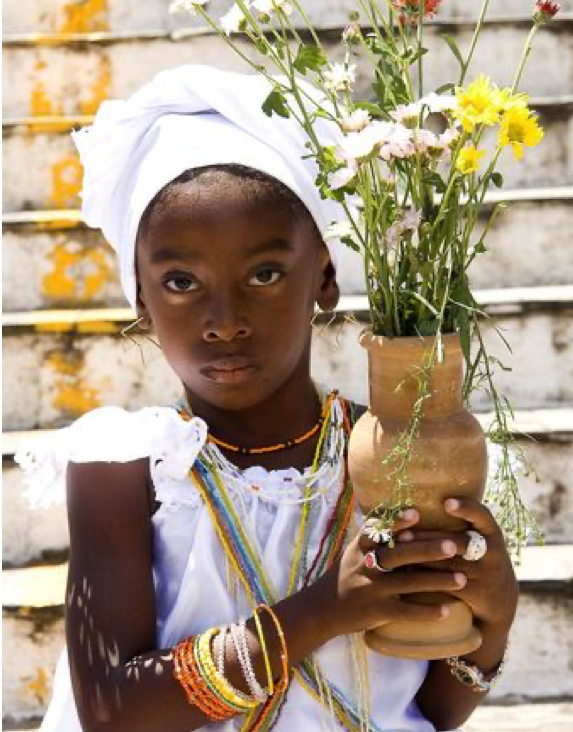This contribution is a mix of a development prospecting post-2023, experience sharing and policy advocacy. In recent times, I have been reflecting a lot about the àbíkú phenomenon in Yoruba thought. And specifically, about how that metaphysical phenomenon could help make sense of the protracted opportunity for greatness that the Nigerian state has been forfeiting since it came into existence. The àbíkú myth narrates the pain and trauma associated with a child who dies at birth, and persistently returns multiple times to the same mother to be born anew in a process of renewed agony. Since the spirit of the àbíkú never really plans on staying alive, it keeps returning to shatter the aspiration of a fulfilled marriage. Once an àbíkú is born, the joy derived from the birth and the hope that attends seeing that child grow are extirpated in a short while. And the die is always cast, no matter the effort of the parents.
The àbíkú phenomenon becomes for me a metaphor for elusiveness—the deferred possibility that has attended Nigeria’s historical trajectory since independence. The question is why, like an àbíkú, the greatness that lies ingrained within Nigeria’s mandate of nationhood has remained perpetually delayed?
It seems axiomatic to say that when there is life, there is hope. However, when hope keeps getting deferred, especially in the protracted expectation that Nigeria will yield to governance reforms that will transform her institutions and her citizens’ lives, then hope seems to lose its capacity to inspire further actions.
This is a personal trauma for me, having been involved in the reform business on behalf of the Nigerian state for most of my adult life. And I am already gripped by the premonition of another aborted hope with regard to the forthcoming election in 2023, and the prospect of another political dispensation for Nigeria beyond 2023.
I, and so many others of my generation, have come a long way from those heady days of potentialities, highlighted by Nigeria’s nationalists and intellectuals. I refer, for instance, to the emergence of the discourse around the very idea of Nigeria itself. From Chief Obafemi Awolowo to Professor Billy Dudley, there was that patriotic concern to unravel the possibility of the Nigerian nation beyond being just a mere geographical expression. I was also within the context of my intellectual maturation when Dr Nnamdi Azikiwe contributed to the large prospecting for Nigeria’s future with his idea of diarchy that seeks to accommodate into the political sociology of the Nigerian state the emergence of military governance after the 1966 coup.
And this was how my governance and institutional reform teeth were cut within the combination of theoretical political reflection and policy professionalism that fed my expertise in implementation research.
My reform efforts over the years have focused on two correlated themes. The first is the emergence of a transformational leadership that is able to create a change space which not only harness the capacities and competences of a select set of game changers, but also the foresight to create the vision and strategy that takes the civil service through the VUCA—vulnerable, uncertain, complex and ambiguous—environment into a synchronised mode for optimal productivity. The second theme is that of a cultural adjustment programme that demands a value reorientation which brings the citizenry to heel on significant behavioural and attitudinal changes that connect everyone to the leadership on the need to transform the Nigerian state. This carries the fundamental message that institutional reform hangs on the dynamics of value reorientation. In other words, widespread vices among the leadership and the populace, that coalesce into political and bureaucratic corruption, will consistently undermine the power of reforms to transform.
Cultural adjustment requires that we put religious and ethnic affiliations in their proper place that will not displace due respect for institutional integrity. For example, we cannot always set up God as the focal point for our individual and collective lack of responsibility. With the leadership in the land, showing example through their lifestyles and those of their family members as well as what they value, it demands that the unproductive investment in owambe parties be redirected to cooperative efforts to create jobs and self-help. This moderates our collective belief that it is only the government, federal, state and local, that we must always look up to for relief from our socioeconomic predicaments. The consumptive malaise, at the expense of a productive economy, must be dispensed to facilitate an industrialised and growing economic base. Here, vocational and non-vocational education must take its place at the core of government’s budgetary investment, while emphasis on R&D as a driver of innovation and global competitiveness is not downplayed.
The government and the governed are both implicated in either the successes or failures of reform exercises. And as we keep focusing on the electoral year just around the corner, I have arrived at a familiar point of anxiety; will Nigerians do right in critically and vigilantly electing an administration which they will then monitor and press into a reform service for the sake of good governance? The reformer in me is very apprehensive due to experiential variables. And yet, the incurable optimist in me also remains eternally hopeful that Nigeria will eventually get it right. This àbíkú child might yet stay this time around.
Prof. Oloapa is a retired Federal Permanent Secretary, [email protected]

 Join Daily Trust WhatsApp Community For Quick Access To News and Happenings Around You.
Join Daily Trust WhatsApp Community For Quick Access To News and Happenings Around You.


